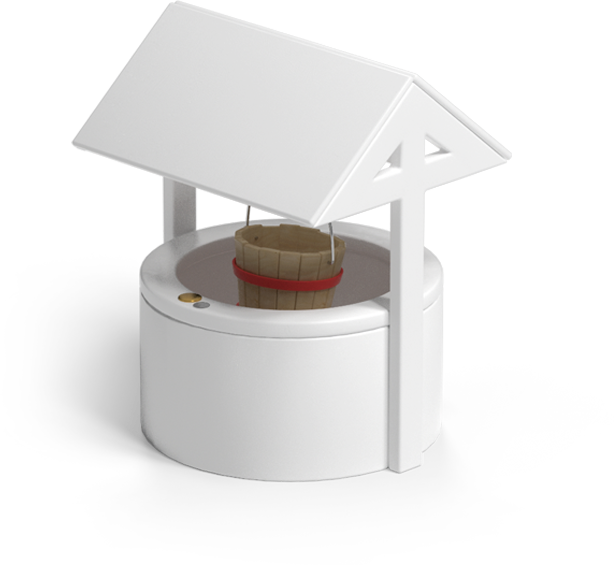Questions To Ask Prospective Tenants
Every landlord faces an element of risk when they take on a property and attempt to fill it. A lot of planning and consideration goes into buying a property, particularly if you have an express interest in renting it out. This is your property and in many cases this could also be your business and your career, so you need to ensure that you are filling the property first and foremost, but also that you are filling it with the right type of tenant.
By Jon Howe4/27/21

Questions To Ask Prospective Tenants
Every landlord faces an element of risk when they take on a property and attempt to fill it. A lot of planning and consideration goes into buying a property, particularly if you have an express interest in renting it out. This is your property and in many cases this could also be your business and your career, so you need to ensure that you are filling the property first and foremost, but also that you are filling it with the right type of tenant.
Screening prospective tenants is standard practice and perfectly acceptable, but it needs to be done in a certain way to make the process fair and reasonable, but also to ensure you end up with the right type of person. As a new landlord this process might be quite difficult at first, but an experienced landlord should have a set of standard questions and general information they need to establish, and which they can refer back to at the beginning of each new tenancy.
This article is designed to explain why this is important, what the reasoning is behind each question you need to ask and how you can be skilful in getting the information you need and ultimately the type of tenant you want.
What are the issues associated with having the wrong tenants?
People become a landlord for different reasons. You may have inherited a property and decide to make some money out of it, or you may have decided to try and make a career out of the buy-to-let market. Either way, this is your property and you will have a personal attachment to it. Therefore you want it to be respected and appreciated, but ultimately you want it to be filled.
How you market the property has a large bearing on how easy it will be to fill. You don’t want to end up with the wrong type of tenant for the type of property you have available; for example, a young professional with high expectations in a cheaply furnished student property. An unsuitable tenant will most likely quickly move on and you are left with an empty property to fill again, but the tenant themselves should see that the property isn’t suitable.
What you need to establish as a landlord is whether the prospective tenant is unreliable, noisy, likely to cause a nuisance, will they pay on time? Do they have a stable career? Could they break a tenancy agreement? Are they likely to stay long term or short term?
It is important to ask the right questions to establish this information, but also not to put people off. Asking direct or tactless questions can unsettle a prospective tenant, and could even be discriminatory. On the other hand, you need the rental income and you might need it very quickly, so there is a balance to be found. Finding new tenants can be costly and time-consuming, so you need to minimise this disruption by approaching the process in the right manner.
What do you want in an ideal tenant?
The first thing you need to work out is what criteria and profile you want in an ideal tenant. This should help formulate a set of questions and the type of general information you need to ascertain. As we mentioned above, this will vary depending on the type of property you have and the type of tenant you are hoping to attract, but generally speaking, most landlords will want a tenant who:
- Has stable employment and a good income, ideally roughly five times more per month than the monthly rental payment you are charging
- Has a good employment history
- Has a good credit history
- Has good general health
- Can provide good landlord references
- Has no history of landlord disputes
You also need to be realistic and it may be unreasonable to expect all these things in a prospective tenant. Ultimately you want a tenant to be honest and reliable, and things like whether they have pets or whether they smoke won’t matter in some properties, as long as the tenant is upfront and honest about it. But a major factor is how you establish this information.
How to ask the right questions
Speaking with a prospective tenant needn’t feel like a formal job interview, but this very much depends on how the person responds and how the two of you get on. It helps enormously if the landlord/tenant relationship is friendly and convivial, but that is influenced by both parties and it is perfectly possible for a healthy and hassle-free relationship to exist even if the two parties don’t get on personally.
The key to asking the right questions of a prospective tenant is to be chatty, informal and tactful. You should find that much of the information you need is then delivered in natural conversation, without it being forced or coerced out, or you having to ask blunt and direct questions. This can sometimes put people off. You should avoid asking direct personal questions that are largely irrelevant, and could be construed as you being nosey or being discriminating.
So you shouldn’t ask about a person’s place of birth, their marital status or whether they have children. It may be obvious that a couple have children if the property is a three-bedroom semi or even larger, and is effectively a family home, but if a single person or a young couple wish to rent it and can afford to do so, don’t put them off. You shouldn’t ask about criminal convictions, a person’s age, about any disability needs or any direct questions about their financial status. This could all be seen as information that is used unfairly to refuse a tenancy.
You want the tenant to feel at ease and comfortable in the property, so create a situation where they are encouraged to be open and not defensive. If a person is uncomfortable or guarded they may seek to keep important information to themselves, even if there is no ulterior motive to them doing so. If you allow people to talk about themselves generally, information will come out naturally and you may fill most of the blanks you need without even asking many questions. People who are more open make it easier for you to read between the lines and make natural assumptions about character, but at the same time it is important that you are not too judgemental.
What questions should I ask?
Filling a property with a tenant can be a hassle, and is certainly time-consuming, and all the time the property is empty, you are receiving no income. So you need to minimise the time spent on finding a tenant, and that means establishing as much information as you can about them, as quickly as possible.
The skill to enabling someone to open up about themselves is in asking more general questions, which perhaps hide more specific questions it might be off-putting to ask. This list of questions below should allow you to establish the general information you need without being too direct or personal.
- Why are you looking to move? This may allow you to learn about any past problems with a landlord or property, whether the prospective tenant has a new job, or perhaps whether they have an unstable lifestyle. Do they complain a lot about a property? Have they recently been evicted? But in general this is an impersonal ice-breaker which may prompt the person to open up about themselves and their current situation.
- Do you know the area? This should help you establish the long or short term motives of the prospective tenant. If they are familiar with the area then they know what to expect. They may also have friends or family in the area, which suggests perhaps a more stable and long term tenancy.
- What do you like about this property? Asking this question should produce more information about the person’s personal ambitions and tastes, but also about their lifestyle and desirability, and whether they are suited to the tenant market you are aiming for.
- Have you been renting long? Again, this should allow you to learn about any financial, employment or personal issues as people describe their circumstances and why they are renting. It may also lead to information about past renting history and what long or short term ambitions they have, ie. are they just renting until they can buy a property? Do they have a history of moving on frequently? This information may not necessarily put you off, but you need to know if the person suits your ambitions and your ideal tenant profile.
- Have you viewed many other properties? This establishes whether the person is a credible potential tenant, and also gives an indication as to whether the property is right for them, if they have viewed others that are similar.
- What do you do? This is a general conversational question, but is vital to the suitability of the prospective tenant. Based on the reply you can carry out some background research into their employer organisation to avoid you having to ask personal questions about income and job stability. You can also follow up the question with “….and do you enjoy it?” to try and tempt out some information about job security and therefore income stability. All of this contributes to the picture you are building about whether the person is going to be reliable and honest.
- When can you move in? This again gives a good indication over personal circumstances and reliability, but you don’t want to phrase the question in a way that it sounds too pushy. Here you can establish whether the person is financially committed to something else, which may raise alarm bells, or their reply may create some holes in a story which suggests the prospective tenant can’t be trusted or is potentially unreliable. Most landlords require a notice period before moving out, apart from under special circumstances, so if a person CAN move in immediately, it may be wise to establish why. They may have been evicted. On the other hand, and at the very least, if a tenant can’t move in immediately or subject to a standard notice period, for whatever reason, they may compare unfavourably with another prospective tenant who can.
In addition to these general questions, it is perfectly legitimate for you to ask about references and credit checks etc, as the landlord is entitled to this information and most people understand that it would be remiss not to ask these kind of questions. And of course if they refuse this request, it should raise a few red flags.
Most tenants expect to be asked about whether they smoke or if they have pets also. Landlords generally have strict policies about each of these, so it is expected that this will be asked and it shouldn’t put someone off to be asked divulge this information.
What can you achieve by asking the right questions?
The principal motivation behind asking the right questions to a prospective tenant, is that you fill the property quickly and start earning rental income. It might be vital that you receive short term finance, and with some property developers, this could be the difference between seeking bridging loans or mezzanine finance, or not. You may have two or three buy-to-let properties and the regular income is vital to financing them.
However, if you are just a part-time landlord and maybe inherited the property, your major motivation might just be to find someone who will look after the property and respect it. It may hold deep sentimental value for you and your family. Therefore, tenant screening is vital in building what you hope will be a lasting relationship with a tenant.
Ultimately, you want the tenant to feel comfortable in your property and you want to be able to trust them and rely on them. So this is a two-way relationship and asking the right questions is the best way to start building this.
Take a look at our other articles




